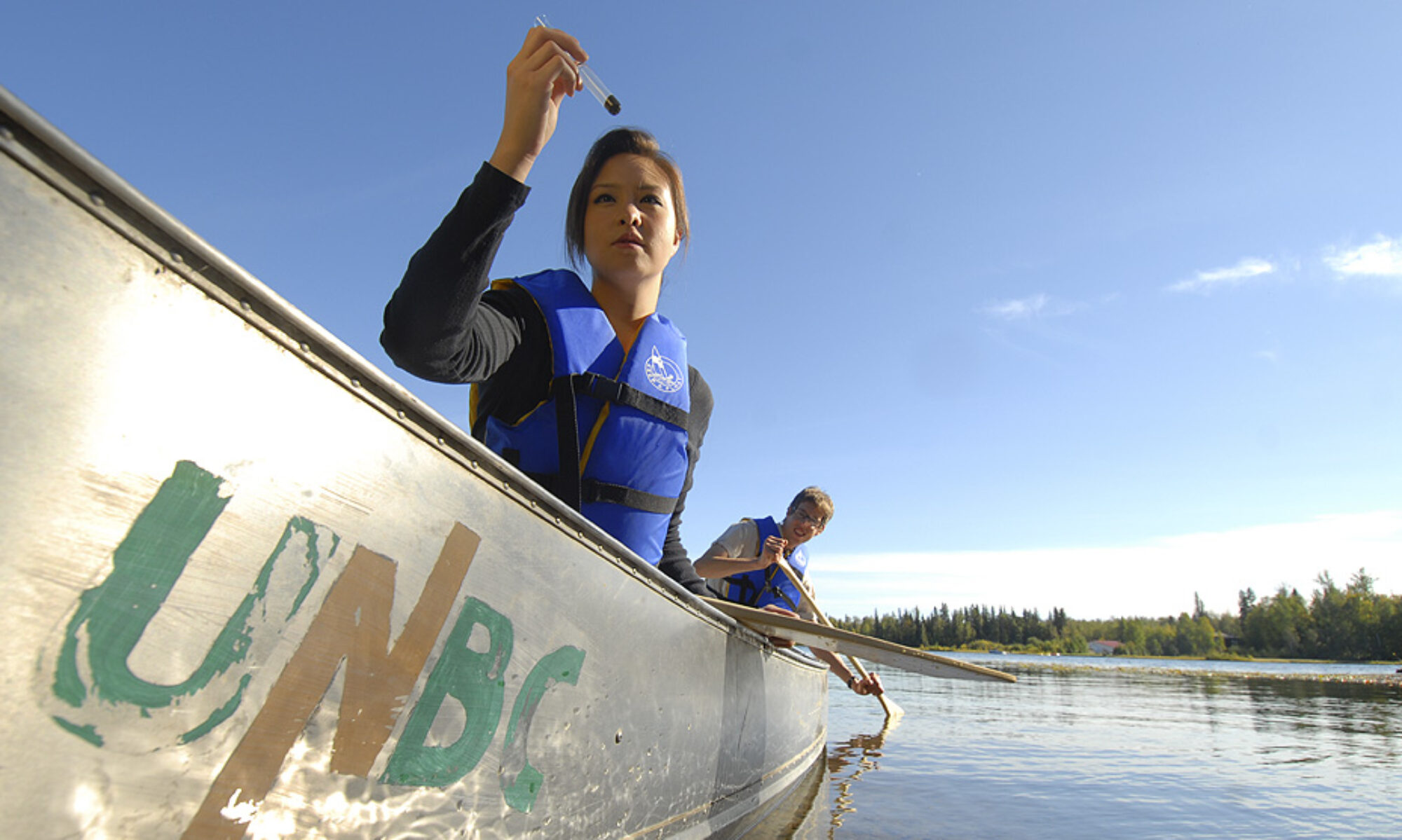As a full-time undergraduate student my day is busy, and it always begins with lots of coffee at an hour that’s much too early. Usually I try to go to the school around 9:00 a.m. so I can sit on the second floor of the Winter Garden to get some natural light from the skylight and while I do some homework and drink another coffee. As a Biochemistry student with a minor in First Nations studies, what’s on the schedule has lots of variety: Metabolism, Physiology, First Nations Research Methods, Ecology, or Organic Chemistry with the accompanying labs could all be in the mix.
As a volunteer Research Assistant with the Northern Biobank Initiative (NBI) another layer of variety comes my way every week as well, and has taught me that not all research involves test tubes and lab work. The NBI is an initiative built by Principal Investigator Dr. Nadine Caron that aims to create a population-based biobank in Northern British Columbia, with a First Nations Biobank embedded within. To answer what’s likely your next question, a biobank is a systematized collection of tissue specimens with clinical annotated data that are associated with specimens and securely stored in a database. It is a tool used to facilitate biomedical research and to answer health-related questions.
This would be the first biobank of its kind in Canada and would allow Northern BC to participate in genomic research that is usually tethered to southern, metropolitan academic health care centres and tertiary care hospitals. This is awesome, because we’re unique here up North and having access to research can be a determinant of health by providing more custom-tailored diagnostics and treatment (insert citation). But in order to create a First Nations biobank in a good way, there first has to be consultation on the ethics, governance, consent procedures, and protocols around First Nations biobank. These consultations with First Nations in Northern BC are what I’m involved with, and they came after the First Nations Chiefs passed a resolution at the October 2016 FNHA Northern Regional Caucus to allow for consultations and to support the NBI.
Being involved in this process makes my days as an undergraduate research assistant interesting: on some days in I’d go get a coffee at Degrees after class and then sit somewhere quiet while transcribing the Key Informant interviews that were conducted with Chiefs and Health Directors from around Northern BC. Transcribing is typing out word for word exactly what was said in the interviews – and made me become very familiar with hot-keys and getting creative to make sure I was catching the inflections and spirit with what was being said.
On other days being an undergraduate research assistant involved arranging times to come together with Elders to create tobacco ties that could be given as gifts during the consultation process, and at events like the First Nations Health Authority (FNHA) regional caucuses. Doing this was such a nice break from school – sitting together with an Elder for a few hours while focusing on putting good intentions into our work of creating the ties makes me feel so calm.
At times later on in the year being an undergraduate research assistant meant feeling like a celebrity, where I was interviewed and then filmed around UNBC to capture some B-roll for a documentary that the NBI team is involved with (it’s not out yet – ask me about it later!) Less glamourous but still interesting tasks included compiling feedback from our advisory board on the creation of a pamphlet that is used for knowledge translation – which is getting research results back to the community in a way that’s more digestible than those 10 page research papers. I then got to see the pamphlets in action when at a later date I helped run the NBI table at the 2019 Northern FNHA Regional Caucus. At this event I enjoyed the free food and talking to the many interesting leaders and community members present about our work with the consultation process.
Overall for me being an undergraduate research assistant has been a very varied experience, that has come with the accompanying diverse learning experiences. That’s why I couldn’t just pick one day to capture the experience, to truly see the spirit of how it is, it’s important to see the big picture of how everything comes together. The year and a half I’ve been involved with the NBI I’ve gained new skills, and most importantly to me gotten to experience the big picture of why research and universities are so important. The creation of new knowledge is a powerful thing, and being able to be a part of that makes studying for my classes seem worth it.
(Except organic chemistry).
